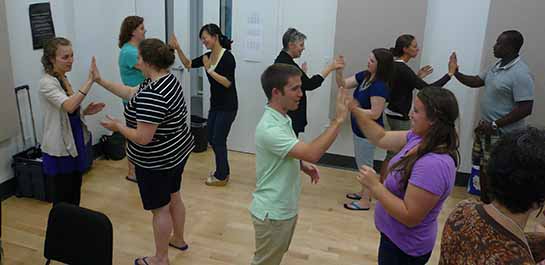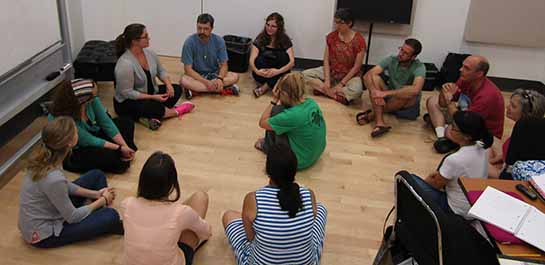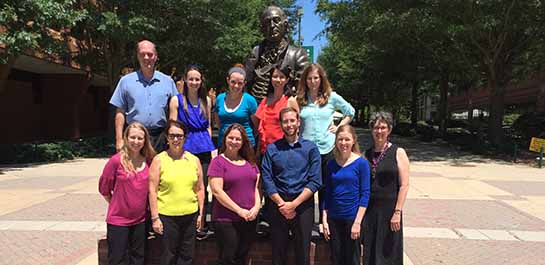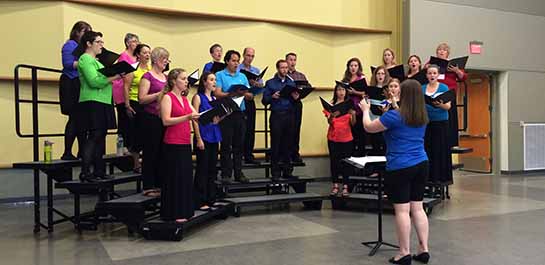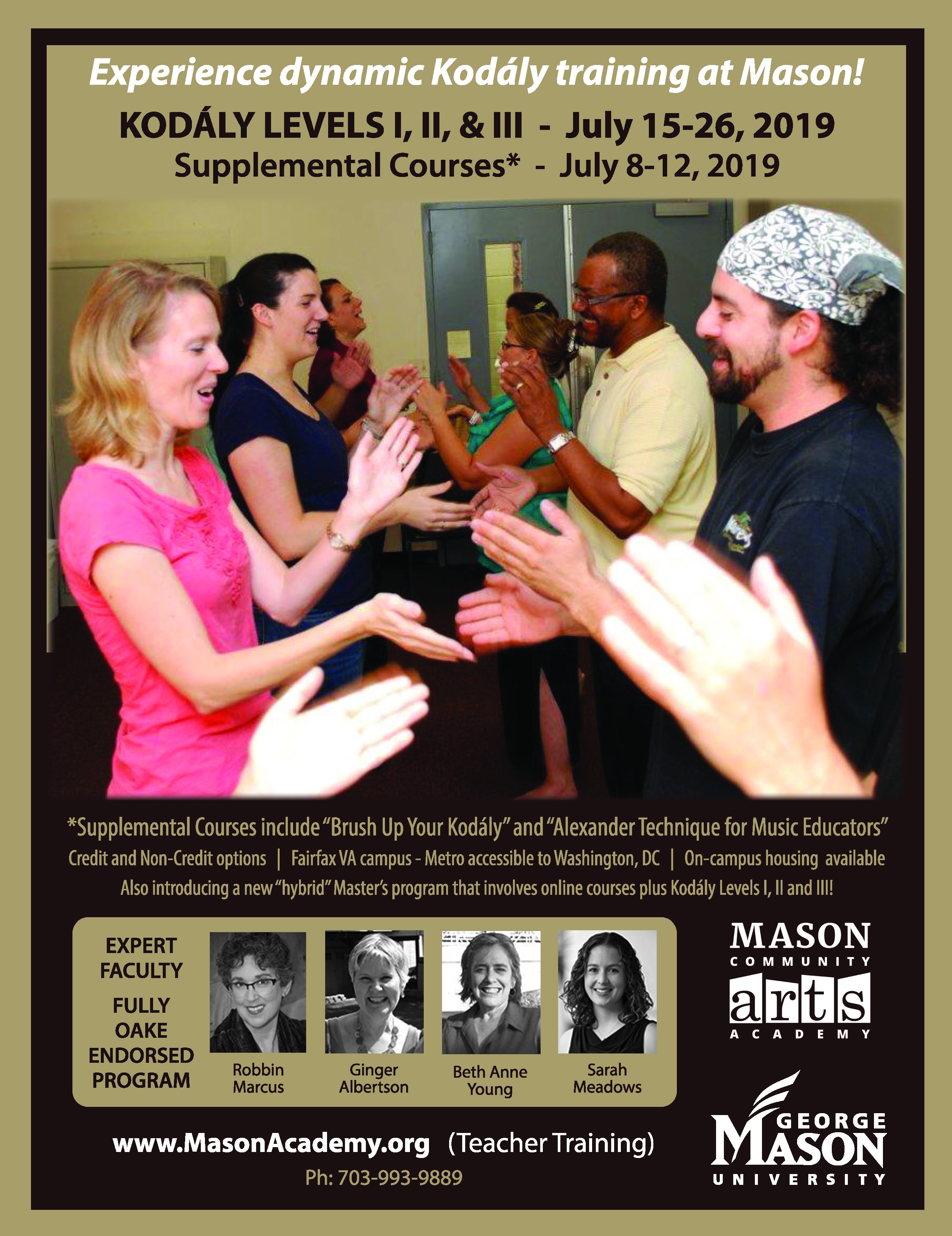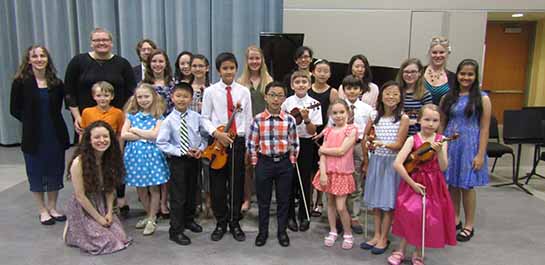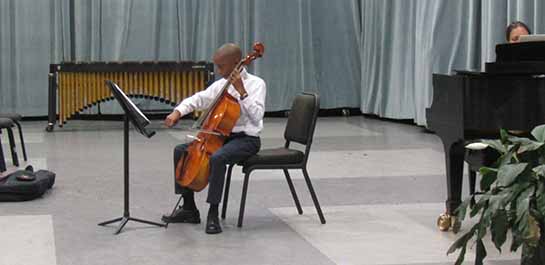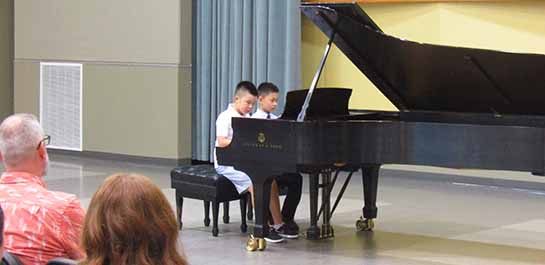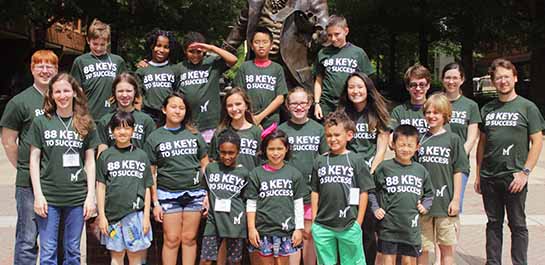This summer, young violinists at all levels have the opportunity to expand their musicianship and improve their skills through a series of holistic training and creative exploration of movement. Students ages 6-12 studying repertoire in Suzuki Books 1-4 will experience sound and movement at Youth Violin Camp (July 22-26), and intermediate and advanced students, ages 10-18, will use movement to improve their fundamental playing technique at Violin Bootcamp (August 12-16).
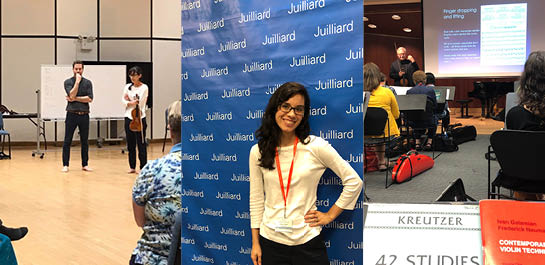
Both these camps are directed by Teaching Artist Claire Allen, who recently attended the Starling-DeLay Symposium on violin studies at the Juilliard School, and will use ideas and inspiration from her training there to create meaningful musical experiences for her students at summer camp.
One idea is involving the whole body in performance to convey musical meaning and feeling, such as through facial expressions, body movements, and gestures. Classes at camp will incorporate games to help students explore this type of performance.
“Movement is tremendously important for violinists for so many reasons,” said Ms. Allen. “First, if our bodies are locked, our music is also locked, and music is such a dynamic force! The violin is incredibly complex to play, and the freer our bodies can move, the easier it will be.”
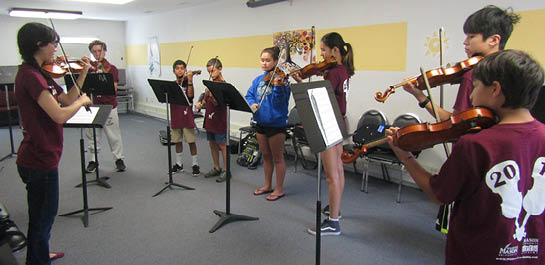
She believes that if students are taught to be expressive and free from the earliest stages of training, it will lead to more creative and dynamic performances as the students advanced.
“Even students who are playing ‘Twinkle, Twinkle, Little Star’ can learn to walk on stage with confidence, breathe while they play, listen to the beautiful sound singing from their violins, and have a musical story or a feeling in their imaginations that they want to share with the audience,” said Ms. Allen.
At Youth Violin Camp, students will start every day singing together, divide into groups to have Suzuki-style group classes, learn about the rich and exciting history of music through listening and storytelling, make new sounds on their violins outside of the classical world. Acting and vocal teachers Jacob Lash and Isabella Lash join the Youth Violin Camp faculty and will be leading students through a special class that will introduce them to the basics of acting and musical movement.
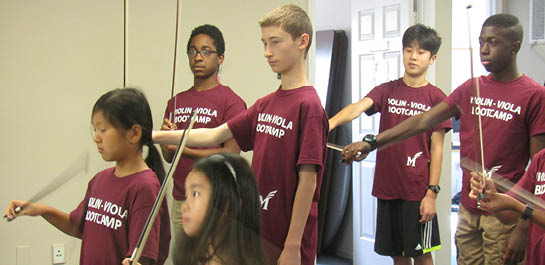
Intermediate and advanced students will have rigorous technical study at Violin Bootcamp. Group classes will focus on finding the freest and most efficient ways to play without tension, and each student will have private lessons throughout the week to receive individualized training. Students will also build skills around topics such as shifting, vibrato, flexibility, bowstrokes, tone production, and intonation.
“Violin Bootcamp is one of my favorite weeks of the year,” said Ms. Allen. “I see students make astounding amounts of progress in a short time because the environment we create is so intensive and allows them to totally focus on their violin playing. Being around other devoted young musicians is also amazingly motivating for the students, and they really support each other and cheer them on.”

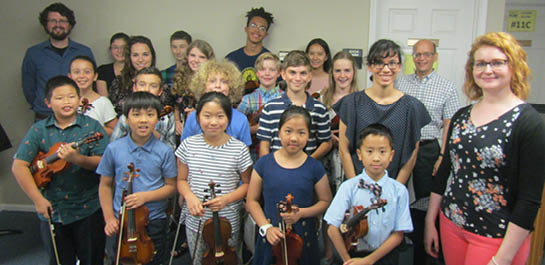
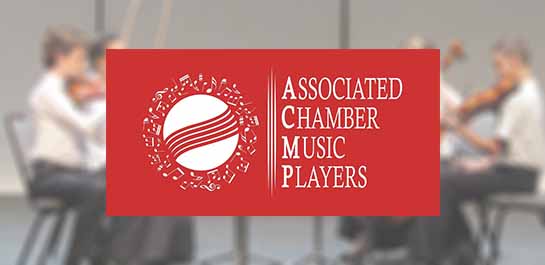
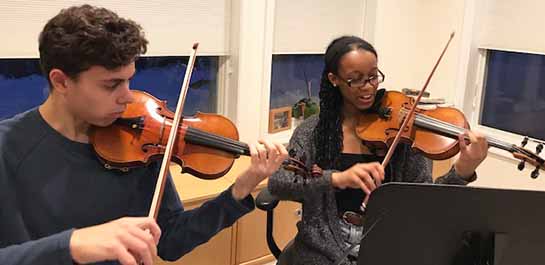
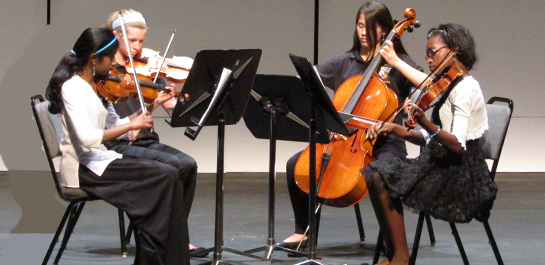
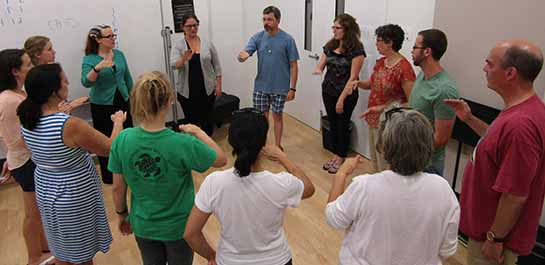
 Guest Contributor:
Guest Contributor: 